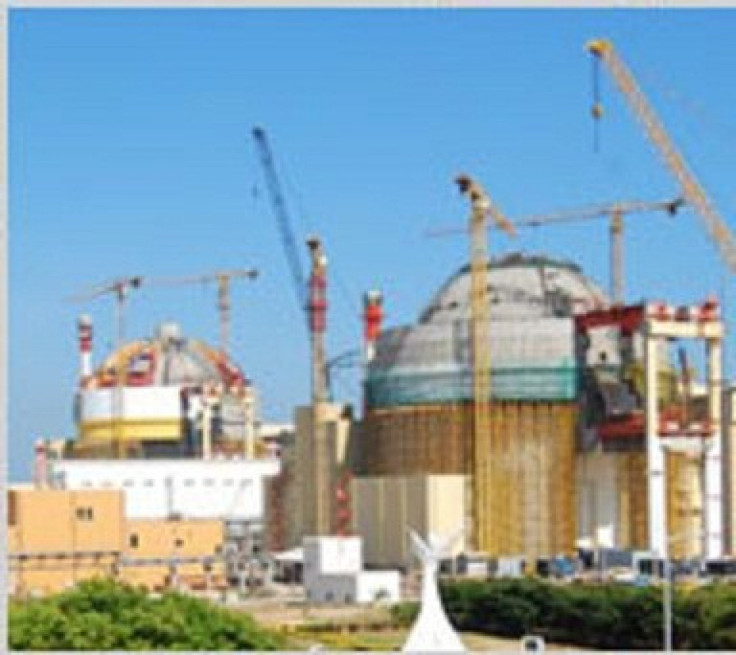Kudankulam Nuclear Plant Row: Sri Lanka Denies Plan To Move IAEA Against India

Sri Lanka has denied Indian media reports that it approached the International Atomic Energy Agency (IAEA) with safety concerns about the nuclear power plant under construction in Kudankulam, in the south Indian state of Tamil Nadu.
Indian media reported last week that Sri Lankan energy minister Champika Ranawaka said Colombo was planning to refer the matter to UN nuclear watchdog. The media reports said Sri Lanka's planned move was an apparent retaliation against India's vote against the island nation at the UN Human Rights Council last month. India had voted against Sri Lanka on the UNHCR resolution urging the latter to credibly investigate allegations of human rights violations during its war against Tamil rebels in 2009.
Responding to the claims, R.L. Wijayawardana, chairman of Atomic Energy Authority (AEA) of Sri Lanka, said his country has not complained to the IAEA about the power project.
Sri Lanka has not brought up the issue of the safety of Kudankulam nuclear power plant against India's voting at the 19th session of the UNHRC, Wijayawardana was quoted as saying by the Times of India. India has every right to use nuclear technology in meeting the requirements of electrical energy. Sri Lankan Government has neither opposed nor registered their protest for any Nuclear Power Plant on Indian soil.
It is unfortunate that remote nuclear accidents are brought up by the media, linking to UNHRC vote and using radiation safety as currency of conversation whipping up fear and insecurity, he said, referring to a Times of India report which said Sri Lanka was worried about Fukushima-like disaster and was planning to use these concerns against New Delhi.
Wijayawardana said the report was faulty and baseless, adding that the Sri Lankan minister in question visited the Kudankulam plant with the Chairman of the Indian Atomic Energy Commission in 2010. Sri Lanka has not lost confidence in getting bi-lateral cooperation in resolving issues of nuclear accidents; nuclear accidents are very remote, taking into consideration the safety features of present day nuclear reactors that undergo a through rigorous licensing procedure, he said.
Meanwhile, claims that Sri Lanka is opposed to the nuclear project triggered protests across Tamil Nadu, with the leader of the main opposition party, M. Karunanidhi, saying that Sri Lanka's safety concerns are not acceptable.
The Kudankulam nuclear power project did not start yesterday. It has been there for a long time. Today, if Sri Lanka raises doubts about the project, it is not acceptable. I don't have to tell what the central government has to do. I am sure they will act appropriately, the DMK leader said last week, when Indiam media brought up the claim.
Former President of India and renowned missile technology expert A.P.J Abdul Kalam weighed in, saying that the media report may be a misunderstanding.
I have not studied the entire report. There may be a misunderstanding. There is no need for concern, Kalam told reporters last week.
Wijayawardana's statement came after a delegation of Indian parliamentarians from different political parties embarked on a six-day visit to Sri Lanka. The delegation is scheduled to visit parts of Sri Lanka that are recovering from thirty years of conflict between the government and the rebels of Liberation Tigers of Tamil Eelam (LTTE).
© Copyright IBTimes 2024. All rights reserved.












